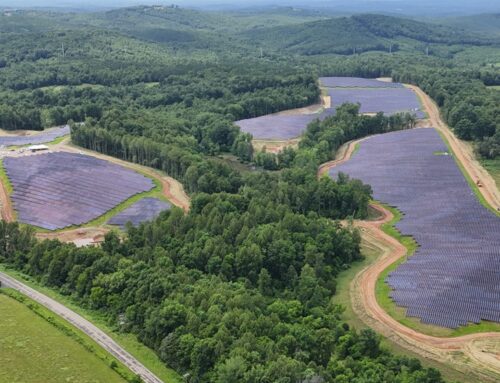Thailand’s Cannabis Boom in Phuket Sparks Tourism Backlash and Urgent Calls for Regulation
June 20, 2025

Thai marijuana boom, particularly in Phuket where nearly 1,500 marijuana outlets now abound, is sparking rapid tourism rebuke as tour operators and families worry about Phuket’s growing reputation for recreational marijuana use. Where Phuket used to be renowned for its stunning beaches and family resort life, it is now being viewed as a marijuana tourist hot-spot—something tourist agents overseas claim already is putting off family travellers. Tourist complaints regarding public marijuana smoking, sale of marijuana-based confections within close proximity to tourist areas, and child risk exposure due to marijuana’s accessibility have generated concerns throughout tourism stakeholders and authorities that more controls are required to help maintain Thailand’s reputation globally as a country that’s both friendly and safe to visit.
Thailand’s reputation as a tropical tourism haven is facing a serious challenge, particularly on the popular southern island of Phuket. After legalizing cannabis in 2022 as the first nation in Asia to do so, Thailand has witnessed a rapid expansion of marijuana-related enterprises across the country. In Phuket alone, nearly 1,500 cannabis dispensaries now operate across three major districts. While initially celebrated as a progressive move toward medical cannabis use and economic diversification, the widespread availability and use of cannabis—especially in tourist-heavy zones—has triggered a backlash from residents and tourism stakeholders. Concerns are mounting over the impact of this rapid cannabis commercialization on family tourism, public safety, and Thailand’s global travel image.
Following decriminalization, Phuket became one of Thailand’s fastest-growing cannabis markets. According to the local public health office, the island now houses approximately 1,495 licensed cannabis stores. Muang district hosts the largest number with 752 outlets, followed by Kathu with 520 and Thalang with 223.
The density of these establishments is most noticeable in tourist hotspots such as Patong Beach, where shops advertising marijuana edibles, joints, and oils now rival traditional tourist offerings. This visibility has made cannabis a defining feature of Phuket’s modern tourist economy—an image that is now under scrutiny.
Despite the legal framework permitting cannabis use, Phuket residents and family travelers have voiced increasing concern about the substance’s recreational accessibility. In neighborhoods frequented by tourists, locals report frequent exposure to cannabis smoke in public spaces, including beaches, sidewalks, and hotel vicinities. Additionally, cannabis-infused edibles such as cookies, brownies, and gummies are being sold with limited warning labels or dosage information.
Parents have raised alarms over the potential for children to unknowingly ingest cannabis through these products, especially in areas where labeling is unclear or products are marketed alongside regular snacks. These concerns are not unfounded, as medical professionals have highlighted the risks of accidental consumption, particularly among minors.
Phuket’s tourism economy—historically dependent on family-friendly branding and international tour groups—has started to experience reputational fallout. According to local tourism associations, international travel agents are reporting hesitation from clients, especially those seeking safe, clean, and wholesome environments for families.
Multiple agents across Asia and Europe have reportedly warned that Thailand’s increasing association with cannabis use is eroding its appeal as a family destination. Feedback from key source markets suggests that families are beginning to opt for alternative Southeast Asian destinations where recreational drug use is more tightly regulated or culturally discouraged.
This feedback prompted an emergency meeting in Phuket between provincial authorities and members of the private sector. During the session, travel and hospitality leaders urged the government to implement stricter controls over cannabis promotion and consumption, especially in tourist-dense districts. They proposed zoning policies, licensing limits, and educational campaigns as tools to mitigate cannabis exposure for vulnerable groups.
Thailand’s move to decriminalize cannabis in 2022 was initially aimed at promoting its medicinal benefits and boosting rural development through agricultural cultivation and wellness-focused tourism initiatives. However, the absence of a robust regulatory framework has resulted in a gray area, where the line between recreational and medical use is blurred.
This regulatory gap is particularly problematic in tourist destinations like Phuket, where cannabis is now widely available to foreign visitors, many of whom are unfamiliar with Thai laws and public health standards. The issue is further compounded by the lack of consistent enforcement, meaning that even basic safeguards—such as age restrictions, public use bans, or retail signage—vary widely from one business to another.
Family-oriented travelers now represent a demographic at risk of turning away from Thailand altogether. With destinations such as Bali, Vietnam, and Malaysia competing in the same travel segments, Thailand may lose market share if it fails to correct course.
In Phuket, tourism operators have started tailoring experiences away from cannabis-exposed zones, creating packages that steer clear of high-density cannabis districts. Luxury resorts and boutique hotels are also revising guest policies to include “no-smoking” clauses that extend to cannabis, reflecting a rising demand for clean-air environments.
Meanwhile, the issue is gaining momentum across social media platforms, where travelers are increasingly sharing firsthand concerns and experiences. Numerous travel blogs, vlogs, and family travel forums are documenting incidents involving unwanted cannabis exposure, further solidifying the narrative that Thailand—Phuket in particular—is becoming less child-friendly.
Importantly, local tourism stakeholders are not calling for a reversal of cannabis decriminalization. Rather, they advocate for stronger regulation that aligns with international tourism expectations. Their proposals include:
- Designated cannabis zones, away from public family spaces like beaches, parks, and shopping malls
- Age verification protocols at all cannabis retail locations
- Warning labels and child-proof packaging for all edibles
- Bans on public consumption in areas frequented by tourists
- Community engagement programs to educate vendors, tourists, and residents on safe cannabis practices
These recommendations aim to balance Thailand’s emerging cannabis industry with its longstanding reputation as a family-oriented travel destination.
While Phuket may be the most visible case study, the issue resonates across Thailand. Bangkok, Chiang Mai, Pattaya, and other major destinations are also seeing increased cannabis-related tourism. Without clear national guidelines, provinces are left to implement their own policies—creating inconsistent visitor experiences and potential reputational damage.
The national government is reportedly working on comprehensive cannabis legislation, expected to include clear restrictions on recreational use and sales. However, the delay in implementation is allowing market forces to shape the country’s image in ways that may be difficult to reverse.
The cannabis industry has undoubtedly generated economic benefits. From cultivation and retail to tourism and hospitality, thousands of new jobs and revenue streams have emerged. In Phuket alone, the cannabis sector has injected millions of baht into the local economy, helping businesses recover from the COVID-19 downturn.
However, these immediate economic benefits could undermine the long-term stability and sustainability of Thailand’s tourism sector. Phuket’s reputation as a wellness and leisure destination must contend with its new identity as a cannabis capital. Striking a balance between economic opportunity and reputational integrity is now the priority.
Thailand’s challenge is not unique. Countries that have legalized cannabis—such as Canada, certain U.S. states, and parts of Europe—have also wrestled with integrating cannabis into their tourism narratives. The key lies in harmonizing legislation with public health, tourism branding, and local community interests.
For Thailand, this means treating cannabis like alcohol or tobacco: legal but regulated, visible but controlled, and profitable without undermining public welfare. With the right safeguards in place, Thailand can maintain its appeal to a wide range of tourists, from solo adventurers and wellness seekers to multi-generational families.
The cannabis controversy in Phuket has exposed a critical fault line in Thailand’s tourism strategy. While economic innovation is vital, it must be pursued in harmony with the nation’s core identity as a safe, welcoming, and diverse travel destination. Without clear regulation, cannabis risks becoming a liability rather than an asset.
Phuket’s increase in marijuana shops has been generating growing concern amongst visitors and tour operators, with ever more households boycotting the island due to widespread recreational marijuana use. The shift in perception has brought forth immediate demands for tough regulations to protect Thailand’s reputation as a family destination.
Now more than ever, national and local authorities must collaborate with tourism stakeholders to implement meaningful reforms. This will ensure that cannabis contributes to Thailand’s economic future without compromising the values that have long made it a beloved destination.
Advertisement
Share On:
Tags: Family-Friendly Destinations, Phuket travel, Southeast Asia tourism, thailand travel, tourism industry backlash, Tourism news, Travel News
Follow Travel And Tour World in Google News
Search
RECENT PRESS RELEASES
Related Post


